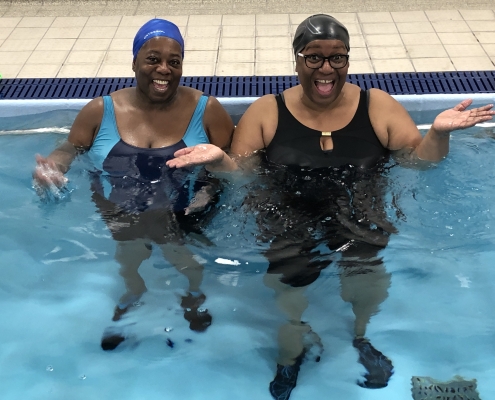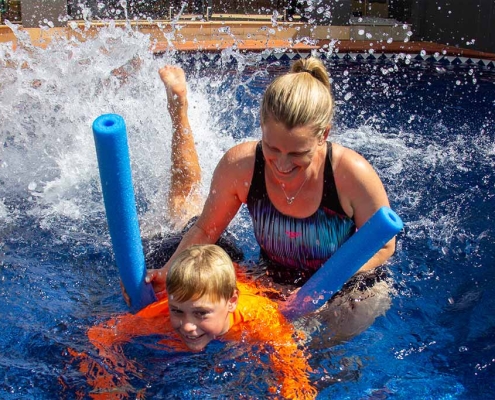What is Hydrotherapy
Continuing Community Care: Hydrotherapy
Hydrotherapy is a specialised form of physiotherapy that leverages the unique properties of water to facilitate rehabilitation and enhance overall well-being. It can address both physical limitations, such as mobility issues, and psychosocial aspects, like stress relief and improved mental health. Conducted in a controlled environment, a heated hydrotherapy pool, with sessions tailored by qualified therapists and administered by trained personnel to ensure safety and effectiveness.
Hydrotherapy offers numerous benefits, including improved mobility, pain relief, reduced muscle tension, and enhanced circulation. The buoyancy of water can alleviate pressure on joints, making movements easier for individuals with physical limitations. Additionally, hydrotherapy can promote relaxation, reduce stress, and improve mental well-being, contributing to a holistic approach to health.
Hydrotherapy can be effective for a variety of conditions, including arthritis, fibromyalgia, sports injuries, neurological disorders, and post-surgical rehabilitation. It is also beneficial for individuals with chronic pain, muscle spasms, and certain orthopaedic conditions. The warmth of the water can help relax muscles and improve flexibility, making it an ideal therapeutic option for many clients.
Hydrotherapy generally does not have strict age restrictions; however, treatments may be tailored based on the individual’s developmental stage and specific health needs. Children, adults, and seniors can all benefit from hydrotherapy, but the approach and techniques may differ according to age-related considerations. It’s important for therapists to assess each patient’s condition and capabilities before beginning treatment.
Contraindications
- Cardiovascular disease
- cardiopulmonary disease
- Diabetic
- Balance disorder
- History of CVA, Epilepsy
- Incontinence
- Labyrinthitis
- a cold
- Influenza
- Fever
- skin conditions
- Chemical allergies (Chlorine)
Serious Contraindications
- Contagious diseases
- Hepatitis
- Tracheotomy
- Urinary tract infection
- Serious Epilepsy
- Urinary incontinence
- Open Wounds
- Recent Surgery
- Hydrophobia






